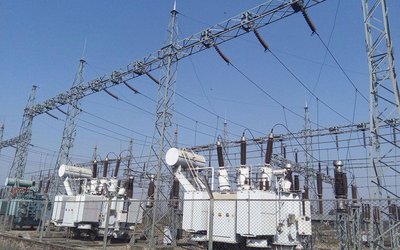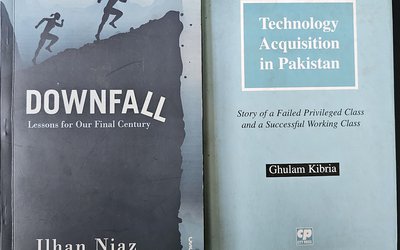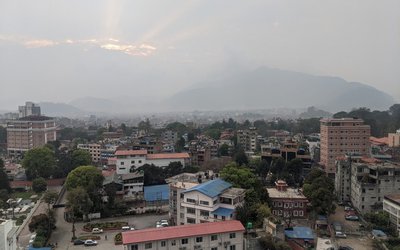
Tony Hagen, a Swiss national, geologist came to Nepal in 1951 and travelled to distant parts of the country studying rocks and later brought out his renowned publication ‘Nepal’, brought out in 1961, with the provision that a certain percentage of the sale of that book would be donated to a fund created for the development of Nepal. The cover and many pictures within the book show decrepit and fragile structures which the author terms ‘bottlenecks’ for travel within Nepal. Hagen described Nepal then, as ‘A land of contrasts’. It still is! This book being the first of its kind highlighted the plight of our people and projected Nepal to the outside world.
After Nepal opened its doors to foreigners, it was the Swiss mountaineers who tried at first to get to the ‘Third Pole’, as they termed Everest. It was however a British team that beat them in this tremendous task. It was perhaps the difficulties of crossing valleys and river that brought to notice the difficulties of the common man in getting from one point to the other. Though one or two suspension bridges, cast in Glasgow England and transported to Nepal existed in the country as at Chovar, the common folk had to cross rivulets on logs placed across them and big river by way of the ‘twine’. I still remember having had to cross by way of a chair like structure over some rivers in the distant part.
What saddens me is that many small children make the crossing over many of our rivers, not on chairs but hanging by a crude contraption held in their small hands whilst crossing turbulent rivers. Imagine the mental stress that must be going on in their minds as their bodies hurtle across. These small kids are usually on their way to school and so it is gross injustice that they are subjected to such hazards. Occasionally one reads too, of instances when the ‘twine’ has snapped or the child, whose hand has momentarily slackened, has fallen into the river to be swept away to end his life. What use is there of talk of ‘free education’ if such hazards have to be faced to attain it? Sadly, this is a way of life for many, a hardship that must be borne if life is to be endured. Many have no time to think or worry about such matters as they go about their daily routine. But for how long?
The Swiss must be given the credit for the stress that they have been laying on communication through suspension bridges in Nepal. Beside the suspension ones they have also built some other types of bridges elsewhere in our country. In fact other major aid givers, especially those helping in road construction, such as American, British, Chinese, Indian, Japanese and Russian have also done so.
Another recent news is of the Ministry of Federal Affairs and Local Development where the claim is made that the government constructed 374 trail bridges during last year to now make a grand total of 5,735 such in the country. A project such as this that will bring happiness, mobility etc. to the maximum of Nepalis at minimum cost must be applauded. Much more happiness will be achieved when all the ‘twines’ of Dhading district will be replaced by suspension bridges in the next five years as has been announced. One wishes that other districts will also take up similar undertakings at the very earliest.
After all, it is the road network (read jeep track & trails too), that helps people to get to their destinations, sell the produce of the land and gradually develop their standards of living. Another recent news in this context is that there are now road-links to Thulogaun in Thabang of Rolpa, the core of the Maoist movement. What must be encouraged is the opening up of the hinterlands of our country. The saddening aspect of this rosy picture of roads, bridges, airport and even hospital construction in our country is that many a time the contractor scamps off with the money, leaving the work unfinished and letting it going to ruins in the following years. The unfortunate reality of all this is that the individual responsible usually gets away because of his political backing!
Coming back to the importance of communication, recalls to my mind other news items stating that in our country of 27 million there are about 10 million users of the Internet and that 97% of the population is under telephone coverage. This is all good for communication. As many Nepalis have mobile phones and with 1/3rd facilities for Internet, SMS and talk respectively, that some cell phone providers give, the time is ripe for us Nepalis to start being more communicative with our leaders. Up to now it is they who have been making pronouncements. They are perhaps in a quandary wondering what to do as we common people have not given feedback to them. The little that some of do on Facebook or Twitter has probably not reached or is inaccessible to them. It is time that we Nepalis started to lobby our leaders to bring out the constitution that we are all waiting for. It is time that they got around to the final round of talks and showed results.
Dilly dallying the process of Constitution making can no longer be condoned. It is no comfort to us Nepalis to hear one group of our leaders utter ‘I Say’ and the other reply ‘U Say’. It is time to announce ‘We Say’ and bring out our Constitution that is long overdue.
(The author writes fiction under the pen-name Mani Dixit. Website: www.hdixit.org.np Twitter: manidixithd)

Hemang Dixit
The author writes fiction under the name of Mani Dixit. Website: www.hdixit.org.np. Twitter: @manidixithd
- Top Heavy
- Sep 20, 2023
- Most Able?
- Sep 04, 2023
- Changing Times
- Aug 21, 2023
- Nepali Shenanigans
- Aug 03, 2023
- Budget Naataks
- Jun 29, 2023
















